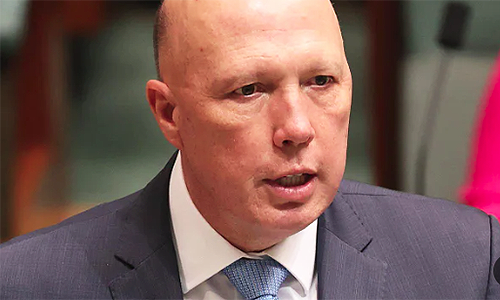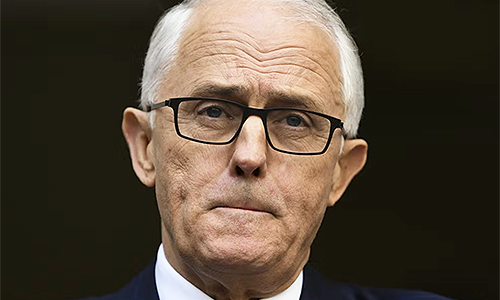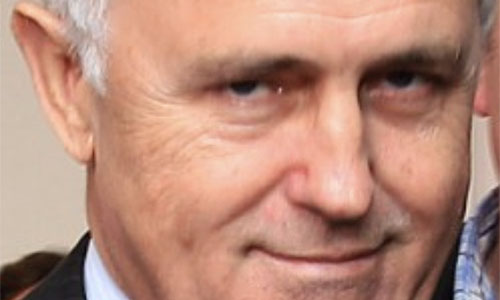
A FAVOURITE argument of the elites is that something is “inevitable” or, more subtly, “the planets are aligned”.
Blasting what he dismisses as our “horse and buggy” constitution, Professor George Williams laments the lack of referendums. So, what even more pejorative term does he reserve for the much older US constitution? Prehistoric.
The real reason we don’t have referendums today is activist judges have awarded Canberra the very powers the people denied them, in some cases five times. That is one of the principal reasons we’re in such a mess.
STEALTH
To achieve this the judges neutralised a crucial constitutional safeguard, the referendum.
As Founders John Quick and Robert Garren explained, the referendum was designed to prevent change being made in haste or by stealth, to encourage public discussion and to delay change until there is strong evidence that it is desirable, irresistible and inevitable.
The judges haven’t yet dared rob the people of their right to decide on proposed structural changes, such as a republic or a third chamber.
So change cannot be made just because some carpet-bagger says it’s inevitable, or a prince, well down in the succession, gives an interview, or because of the oft-repeated lie that only in a republic can we get an Australian as head of state. On this, the politicians will shamelessly use the constitutional monarchist argument that we’ve a head of state in the governor-general whenever it suits them, as have Malcolm Turnbull, Kevin Rudd, Bob Hawke and others.
SINISTER
What is urgently needed is to strip Canberra of both illegitimate power and excessive taxes and to constitutionalise common sense. With politicians determined to seriously damage agriculture, as they’ve already done to manufacturing and fishing, this is urgent.
Either inadvertently or deliberately, they’re turning us into a satellite, not of the Chinese people, but of the sinister Chinese Communist Party.
On this it’s now very clear that the last thing the Chinese want is to live in a communist republic. This is the only conclusion to be drawn from the 85 per cent anti-communist landslide in the only real elections allowed across all of China, those in Hong Kong. They’d obviously much prefer to live in a Crown colony.
Meanwhile, as predicted here, the silliest reason to revive the comatose antipodean republic has unduly excited the media. Most elites, politicians and commentators claim their politicians’ republic will mirror exactly what we already have. But fearing Australians would choose someone like Donald Trump, the last thing they’ll agree to is letting the people elect the president.
HEREDITARY
Since most don’t know much about real republics, the elites make two mistakes.
First, they assume the Americans rejected the Westminster system. They didn’t. This only emerged well after American independence. Under Alexander Hamilton’s influence, the model they chose was Britain’s Constitutional Monarchy, Mark I, but with one difference. Despite the little-known attempt to draft a Prussian prince as King, Hamilton’s proposal for a life president and John Adam’s suggestion he be referred to as “His Majesty”, the model came without the hereditary element.
The result was a unitary or single-person executive, which the British only later abandoned in favour of cabinet government responsible to parliament, Constitutional Monarchy Mark II which prevails today.
The American adoption of a unitary executive made most of the whingeing by diplomats at Trump’s impeachment hearings irrelevant. It’s for the President — and the President alone — to determine foreign policy. Doing this is no “high crime or misdemeanour”, it’s his role.
To return to Australia, the elites forget or ignore the fact that in the Nineties the official republicans developed not one but two models, categorised in my book, The Cane Toad Republic, as the First and Second Keating-Turnbull Republics.
REPUBLIC
The move from the First Republic demonstrates the elites’ second mistake. Rather than his election, the crucial thing is the way a president can be removed.
This was by a two-thirds vote at a joint sitting. I warned at the time that this would inadvertently turn us into a French Fifth Republic, where, to prove my point, the president was not originally elected by the people.
The following illustrates what could have happened under the First Keating-Turnbull Republic.
Assume that to get Labor to make up the required 2/3 vote, a Coalition government nominates a respected former PM, of the calibre of Bob Hawke, as president. But when the government’s union integrity bill is presented to him, he refuses assent. He begins to express his opinion on other political issues, exciting the media. Labor refuses to join in a 2/3 vote to remove him. Watching the polls, the president gets ready to bring on a surprise election. Much the same could occur under a Labor government. No one could work out how to make the president act like a governor-general.
Republicans ignored my warning until Richard McGarvie QC, a former governor and judge with a distinct Labor background, agreed.
The republican’s solution was the Second Keating-Turnbull Republic giving a prime minister powers unknown in the civilised world. He could dismiss the president without notice, grounds or right of appeal, making any president his puppet. The nation’s most honest politician, real-republican Ted Mack, told me this was exactly what the politicians wanted.
SHUT UP
The alternative was not to transfer to the president any of the governor-general’s powers, the exercise of which works so well under the conventions which surround the Crown. The republicans probably realised that a referendum with a powerless president would result in a lay down misére for the No case.
Surely, after three decades, the republicans should be able to say precisely what they want. Until then they should just shut up. And in the meantime, rather than rising for their long CO2 emitting summer, the politicians should be locked up in Canberra until they come up with the necessary solutions to save our farmers.PC












So put simply, – Australians are broadly scattered along the scale in their politics but with the majority holding firm to the basics of conservatism or of socialism.
However, as the average man or woman, (such as myself), has become incredibly more informed/aware and is prompted constantly to form strong opinions on diverse but important issues, the desire to ‘cross the floor’ temporarily to support a particular cause arises more frequently. i.e. – sometimes reddish people feel compelled to be coloured blue on an issue and also the reverse.
Therefore, it’s become an absolute necessity to hold more frequent referendums on major issues; we must be given further voice.